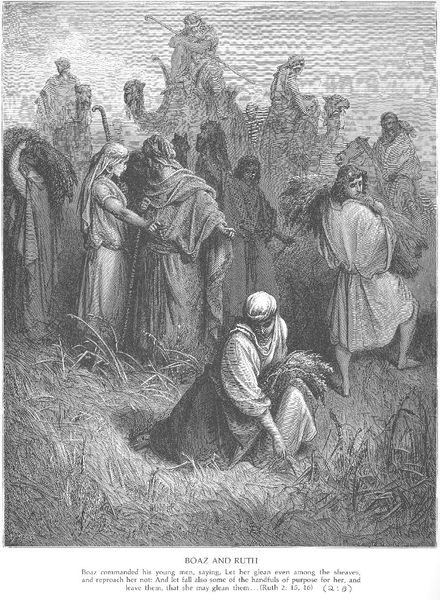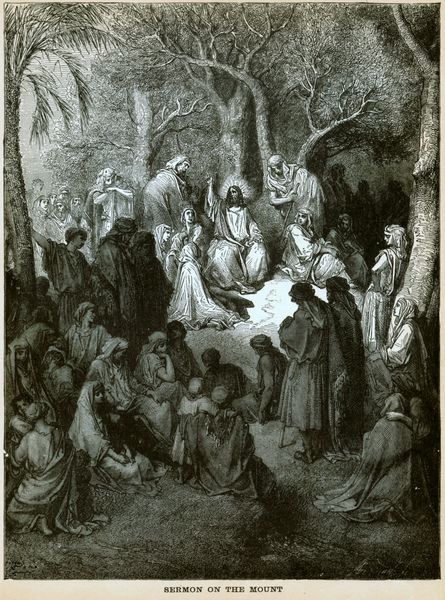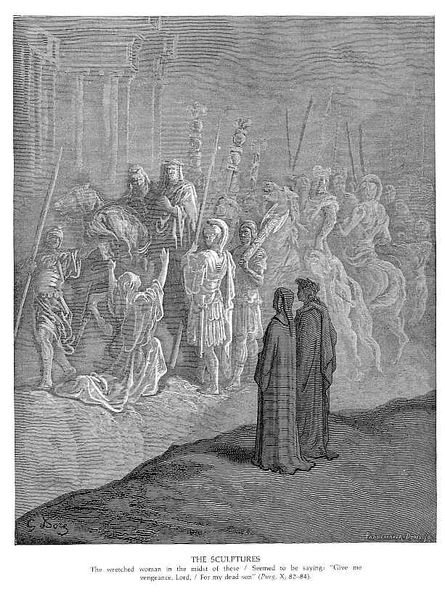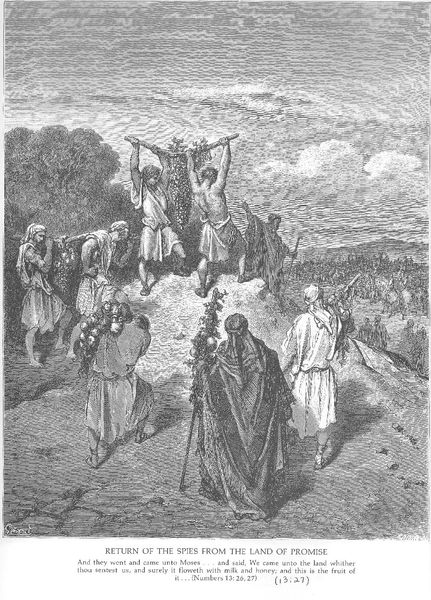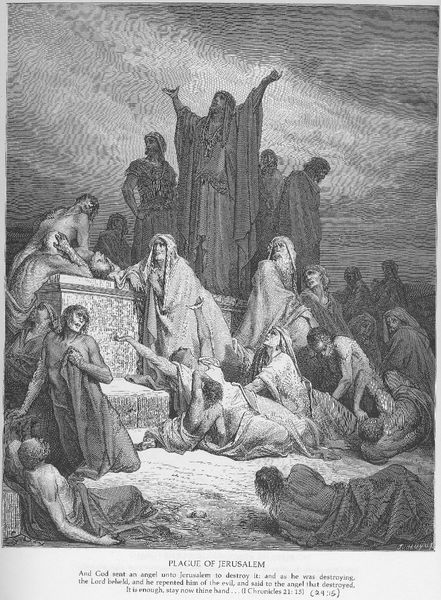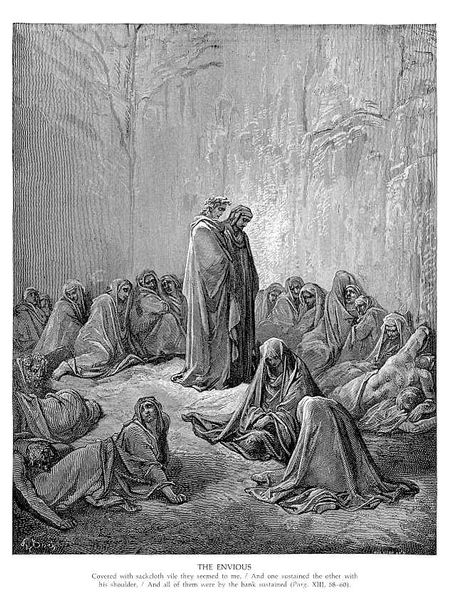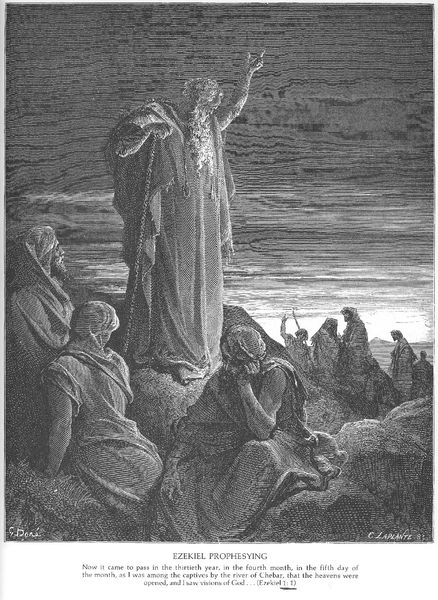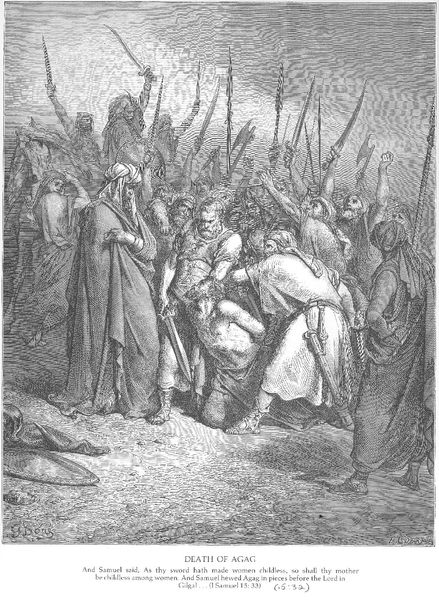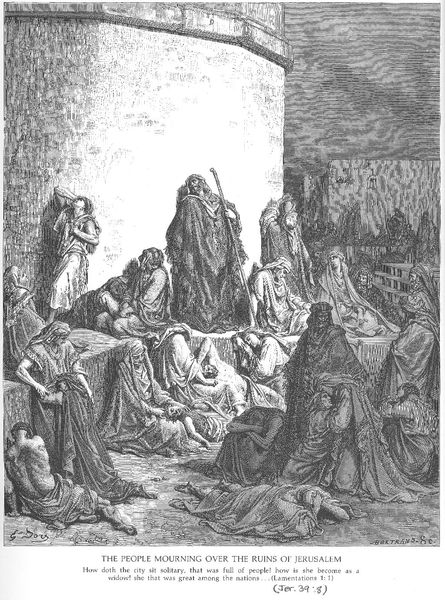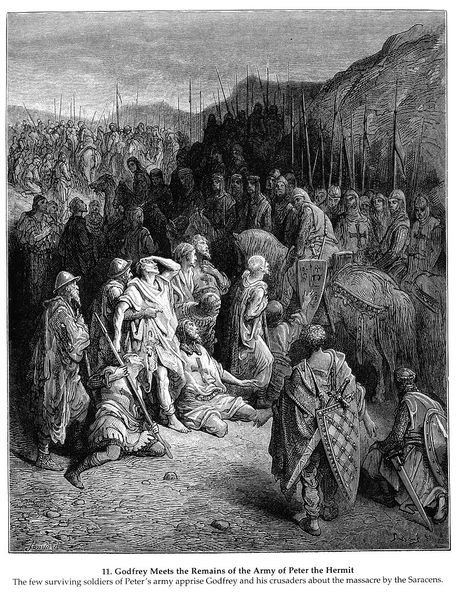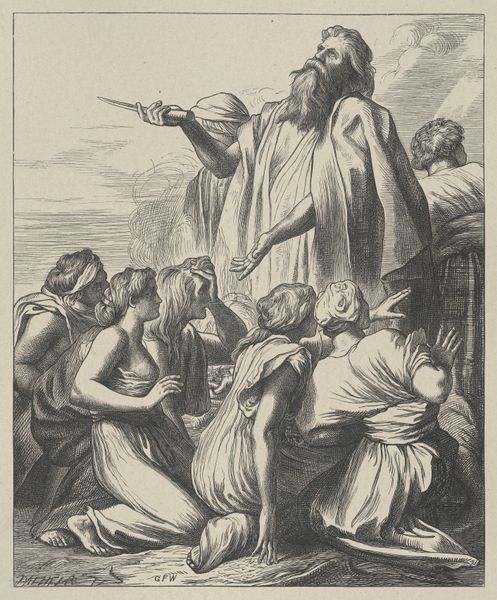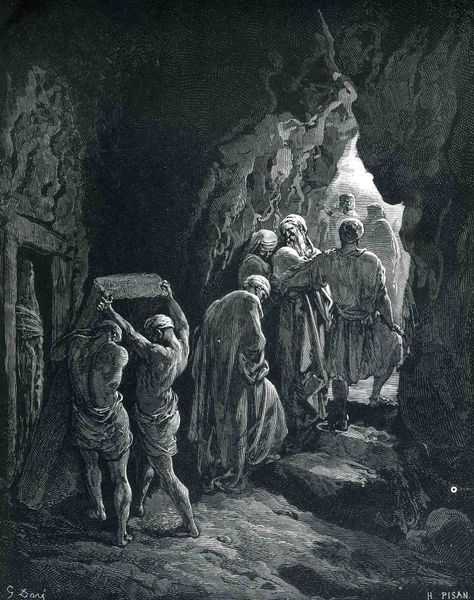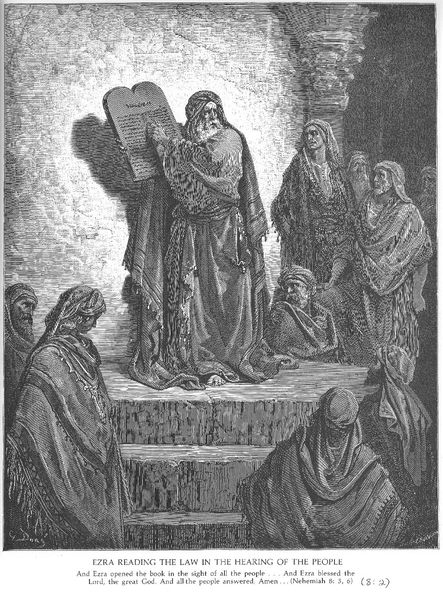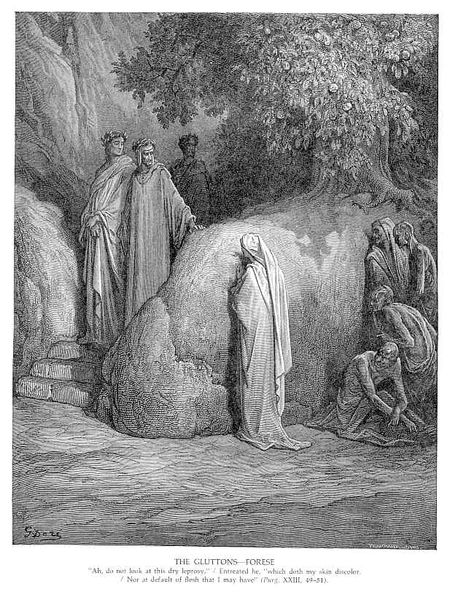
print, engraving
#
narrative-art
# print
#
christianity
#
history-painting
#
charcoal
#
engraving
Copyright: Public domain
This is Gustave Doré's vision of "The Gleaners," an etching illustrating a biblical scene rich with enduring symbols. At its heart lies the motif of gleaning, the act of collecting leftover crops. This simple act connects to ancient laws and customs, promising charity and survival to the marginalized. Look how this scene echoes through art history; the theme of the poor gathering the scraps from the field. In religious texts, the symbol of the harvest has deeper meanings, representing divine providence and justice. The ripe wheat represents not just physical sustenance but spiritual fulfillment. Consider the way the figures gather. Their bowed posture conveys not just physical labor but also submission and humility. It’s a gesture we see repeated in religious art throughout the ages. The very act of bending, collecting, and rising again can symbolize a cycle of despair and hope. Doré’s image, with its stark contrasts and dramatic composition, serves as a potent reminder of the cyclical nature of human experience. The act of gathering leftovers transcends time. We see the poor and dispossessed who carry an indelible mark.
Comments
No comments
Be the first to comment and join the conversation on the ultimate creative platform.
